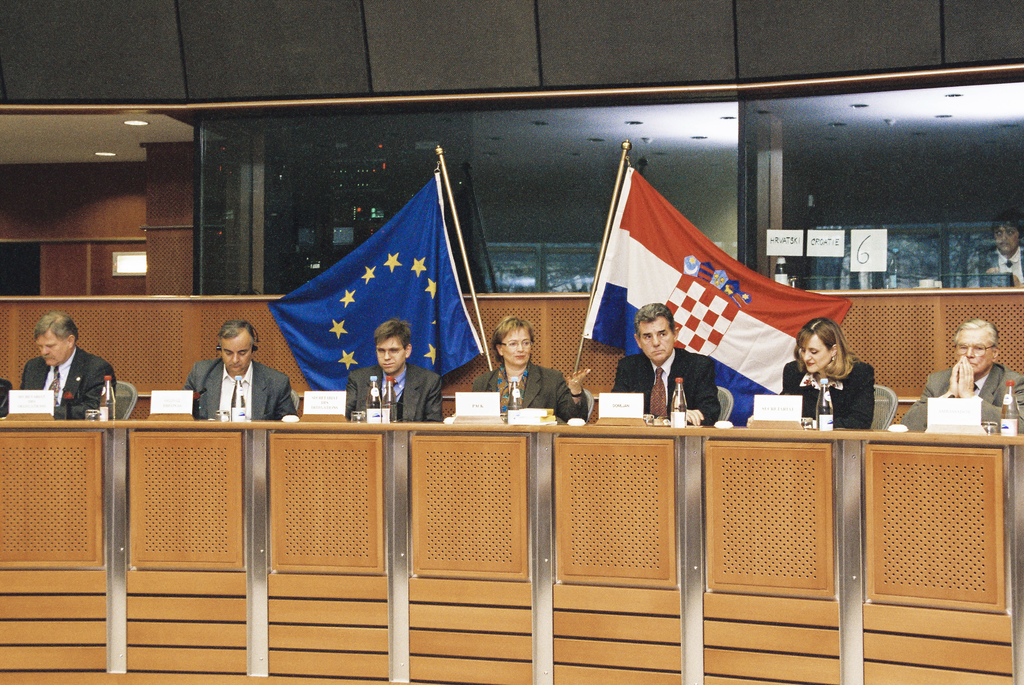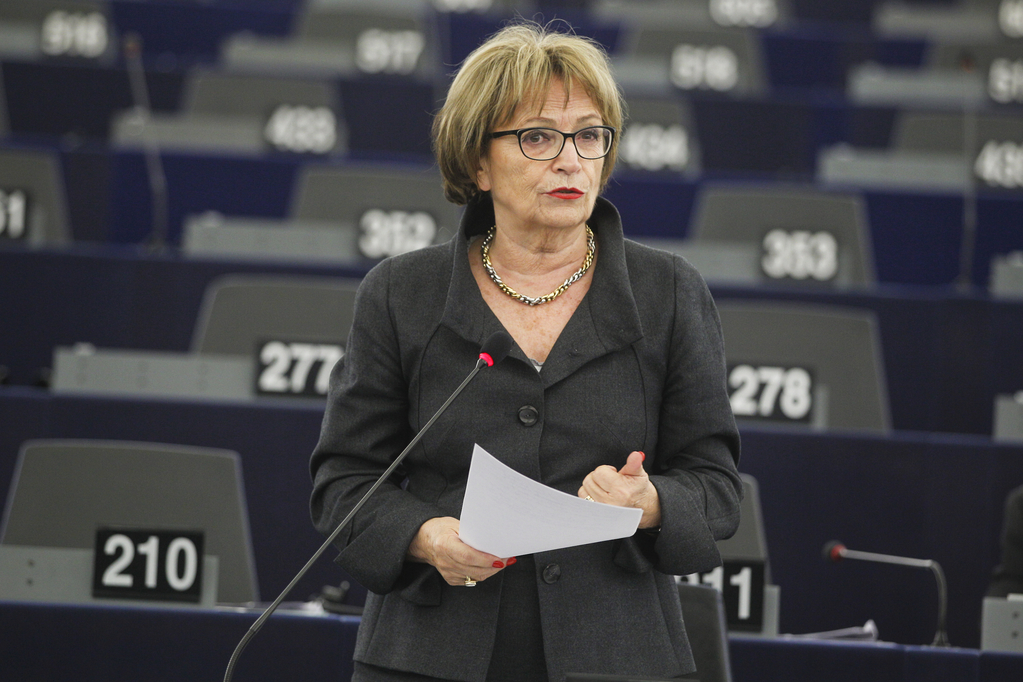Political groups
1989-1999: Group of the European People's Party (Christian-Democratic Group)
1999-2009: Group of the European People's Party (Christian Democrats) and European Democrats
2009-2014: Group of the European People's Party (Christian Democrats)
National parties
1989-2014: Christlich Demokratische Union Deutschlands
Biography
Doris Pack was born in Schiffweiler, Germany. She graduated from teaching college in 1965 and worked as a primary school teacher until 1974. From 1983 to 1985, she worked for the Saarland Ministry of Education.
She served as a member of the German Bundestag from 1974 to 1983 and from 1985 to 1989. She was also a member of the Parliamentary Assembly of the Council of Europe and of the Assembly of the Western European Union (1981-1983 and 1985-1989).
From 1989 to 2014, Doris Pack was a Member of the European Parliament. She is a member of the Christian Democratic Union, which is part of the European People's Party in the European Parliament. During her time as MEP, Pack chaired the Delegation for relations with South-east Europe, the Committee on Culture and Education, and the Conference of Committee Chairs. In addition, she was active on the Committee on Women's Rights and Gender Equality and on the Committee on Foreign Affairs.
Doris Pack spearheaded the creation of the European Voluntary Service, now known as the European Solidarity Corps, which gives young people the chance to take part in projects that benefit communities either abroad or in their own country.
 EU-Croatia Joint Parliamentary Committee. Pictured: Ioannis Theonas, Doris Pack, Zarko Domljan, Commissioner Hans van den Broek © European Communities 1998 - European Parliament
EU-Croatia Joint Parliamentary Committee. Pictured: Ioannis Theonas, Doris Pack, Zarko Domljan, Commissioner Hans van den Broek © European Communities 1998 - European Parliament
Doris Pack is President of the Robert Schuman Institute and Honorary President of the European Union of Women. She is the Chairwoman of the Foundation for Franco-German Cultural Cooperation, Secretary-General of the Franco-German Cultural Council as well as President of the Franco-German Youth Literature Prize and of the European Children's Book Fair Association. She is President of the Saar Adult Education Association and Vice-President of the European Movement on the Saar. She is also an Executive Member of the European People's Party.
For more information on her time as an MEP, click here.
Selected plenary speeches
At the plenary session on 18 November 2013, Doris Pack spoke in her capacity as the Committee on Culture and Education's rapporteur for a proposal for a regulation establishing the Union programme "ERASMUS FOR ALL" for education, training, youth and sport:
Part 1:
Part 2:
During a joint debate on several reports from the Committee on Culture and Education at the plenary sitting on 12 May 2011, Doris Pack emphasised the importance of the cultural dimension of the EU's external policy and the importance of continuing the Union's education and youth programmes. As the author of an oral question on behalf of the Committee on Culture and Education, which Doris Pack chaired during the 7th parliamentary term, she argued in favour of a derogation to designate Sarajevo as European Capital of Culture 2014:
At the plenary session on 15 June 2010, Doris Pack, in her capacity as Chair of the Committee on Culture and Education and author of an oral question on sport, specifically concerning players' agents, called on the Commission to take urgent action in view of the worrying connections between players' agents and criminal activities:
What's in the archives?
The content of Doris Pack's archive is quite homogenous, essentially consisting of the originals of the correspondence with the representatives of the countries located in the South-East European area between 18 April 2002 and 19 February 2014. It reflects her parliamentary role on the Committee on Foreign Affairs and on the Committee on Culture and Education and as Chair of the Delegation for relations with the Countries of South-Eastern Europe. The fonds reflects the central position attributed to Doris Pack in relations between the European Parliament and the institutions of the Balkan countries. It addresses issues arising from the series of conflicts in the territories of the former Socialist Federal Republic of Yugoslavia between 1991 and 2001.
Topics such as political cooperation with national bodies, the promotion of culture and education and the advice of the European Parliament to support the accession process of the territories of the former Yugoslavia were discussed and documents related to these are included in the archive. Moreover, the fonds testify to the constant dialogue between Doris Pack and Parliament's interlocutors. She built a relationship based on a thorough knowledge of issues relating to the Balkans but also on the confidence shown by the institutions of the countries concerned. Correspondence also comes from political actors, including members of governments, local and national elected representatives, as well as Commissioners and Members of the European Parliament.
During the analysis of the fonds, it appeared that Doris Pack deposited a sample of her correspondence that was selected based on the thematic importance of its content and the functions she performed in various committees and delegations. The filing plan is divided into two parts:
- Correspondence related to the Committee on Foreign Affairs and the Delegation for relations with the countries of South-Eastern Europe
- Correspondence related to the Committee on Culture and Education
 Doris Pack in a plenary debate on the enlargement report for Bosnia and Herzegovina, March 2012 © European Union 2012 - European Parliament
Doris Pack in a plenary debate on the enlargement report for Bosnia and Herzegovina, March 2012 © European Union 2012 - European Parliament